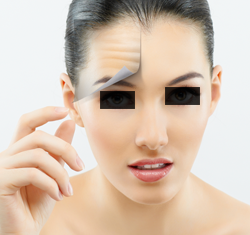
Dr. Abha Bhatnagar specializes in Dermatology (Skin disorders).
She did her MBBS from SMS Medical College, Jaipur and MD from Postgraduate Institute of Medical Education and Research, (PGIMER), Chandigarh.
Later she worked as a Senior Registrar in Government Medical College and Hospital, Sector 32, Chandigarh.
Throughout her academic career she has won several national and international awards including the prestigious Poster exhibit award by American Academy of Dermatology, USA, scholarship by International Society of Dermatology to addend International Congress of Dermatology, Prague, Czech Republic and travel scholarship by Women's Dermatology Society, USA.
She has authored several research papers in international journals. She is also reviewer for several international peer reviewed indexed journals including Clinical and Experimental Dermatology, UK and Journal of the European Academy of Dermatology and Venereology.
Dr. Abha Bhatnagar is the Vice President of Chandigarh Dermatology Society.
She is an active member of the Indian Association of Dermatologists, Venereologists and Leprologists (IADVL) and Association of Cutaneous Surgeons of India (ACSI).
She has also volunteered with State AIDS Control Society, UT and Leprosy elimination campaigns of UT.
Her area of special interest is Aesthetic and Cosmetic Dermatology, Pigmentary Disorders, Paediatric Dermatology and Skin Care Counselling.
Clostridium botulinum, the bacterium from which Botox is derived, is found in many natural settings, including soil, lakes, and forests.
The bacterium can also be found in the intestinal tracts of mammals and fish and in the gills and organs of crabs and other shellfish. Such naturally occurring instances of Clostridium botulinum bacteria and spores are generally harmless.
Problems only arise when the spores transform into vegetative cells and the cell population increases. At a certain point, the bacteria begin producing botulinum toxin, the deadly neurotoxin responsible for botulism.
Neurotoxins target the nervous system, disrupting the signaling processes that allow neurons to communicate effectively.
Botulinum toxin is one of the most poisonous substances known to man. Scientists have estimated that a single gram could kill as many as 1 million people and a couple of kilograms could kill every human on earth. In high concentrations, botulinum toxin can result in botulism, a severe, life-threatening illness. Botulism, left untreated, may result in respiratory failure and death. Despite botulinum toxin being so toxic, Botox is in huge demand.
Despite this, botulinum toxin has proven to be a successful and valuable therapeutic protein.
Botulinum toxin can be injected into humans in extremely small concentrations and works by preventing signals from the nerve cells reaching muscles, therefore paralyzing them.
In order for muscles to contract, nerves release a chemical messenger, acetylcholine (a neurotransmitter), at the junction where the nerve endings meet muscle cells. Acetylcholine attaches to receptors on the muscle cells and causes the muscle cells to contract or shorten.
Injected botulinum toxin prevents the release of acetylcholine, preventing contraction of the muscle cells. Botulinum toxin causes a reduction in abnormal muscle contraction, allowing the muscles to become less stiff.

of [Zirakpur]
The Skin Solutions
SCO 15,FF, Amcare Plaza,VIP road,
Zirakpur, Mohali, Punjab 140603
Monday to Saturday
09:30 AM - 02:00 PM
4:00 PM - 6:00 PM